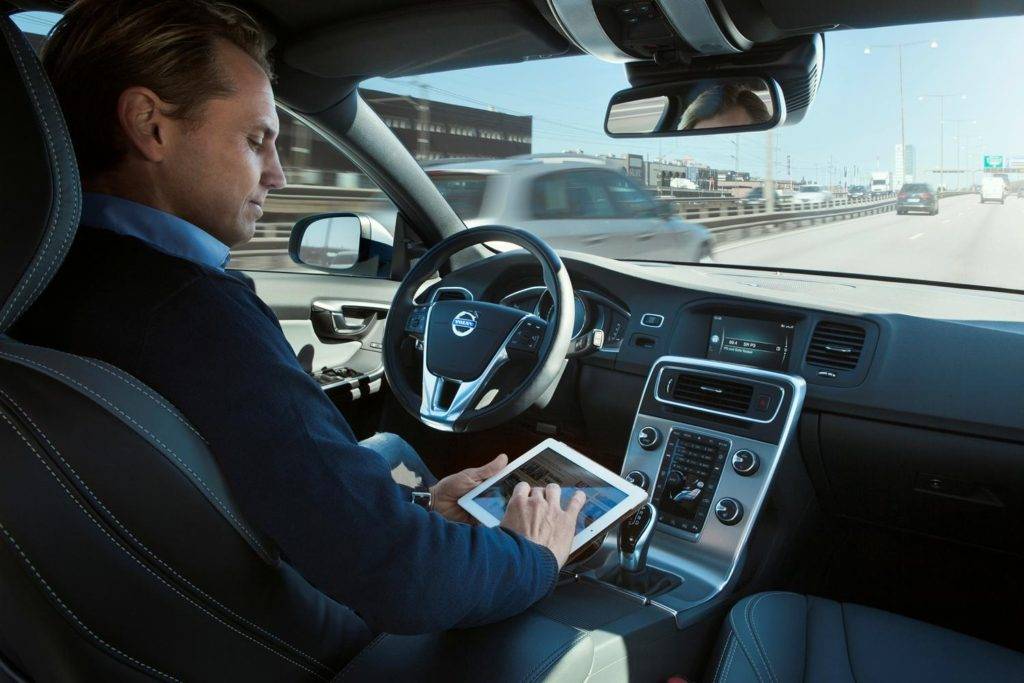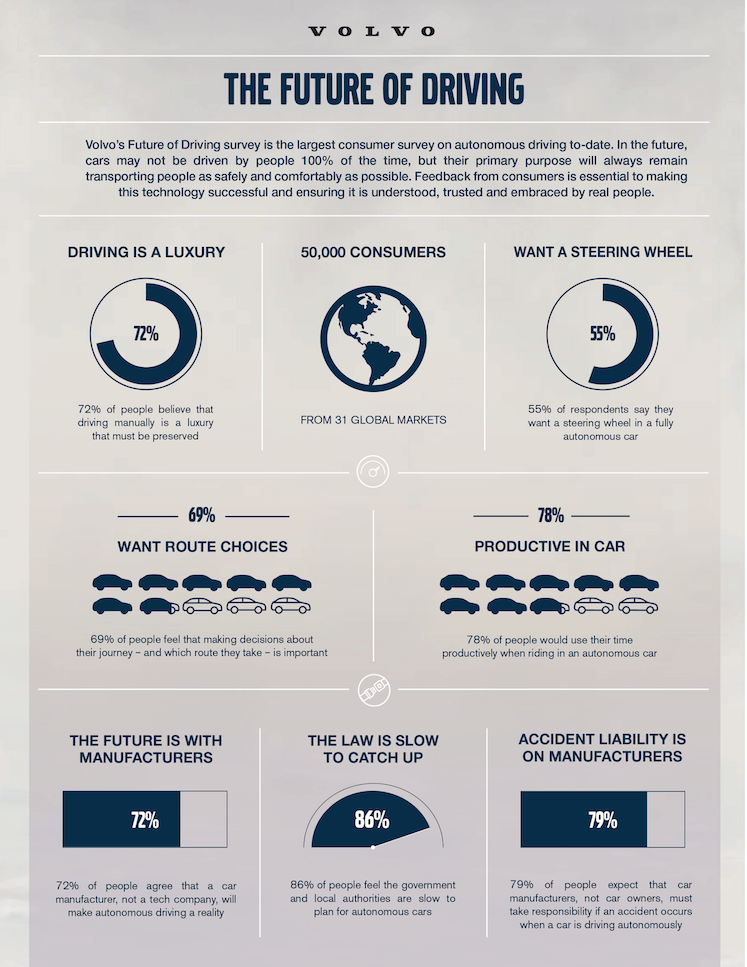Autonomous cars are still a foreign concept to a lot of drivers on the road, as evidenced by a recent British survey that showed most had an unfavorable view of the technology.
Swedish automaker Volvo ran another survey in the U.S., looking at how the opinions towards autonomous cars differ on a state level. Turns out, people from New York and California have the most favorable views, while residents in Texas, Pennsylvania, and Illinois are more skeptical.
See Also: Not so fast: Feds defer to states for self-driving laws
90 percent of New York residents and 86 percent of Californians believe autonomous cars can make life easier. Compared to the national average of 80 percent. The two states were also ahead of the national average on cars making decisions, 65 and 67 percent said they would trust the computing technology inside the car.
Illinois was one of the most concerned about autonomous cars making decisions, with only 52 percent of residents trusting the tech, 10 percent under the national average. In Texas, only 60 percent of residents believe autonomous cars would keep their family safer, nine percent lower than the national average.
While there are a few differences between states, one thing almost everyone (90 percent) agrees on is the government has been slow to plan for self-driving.
It is not surprising that California is one of the more receptive to autonomous cars, considering it is home to the largest tech hub in the world. It is also where Google, Tesla, and a few automakers have been testing their autonomous cars.
Explaining New York’s favorable views towards autonomous cars is tougher, though heavy congestion in the city and higher technology penetration could be two reasons. The survey was online and nearly 50,000 people responded, so the information may be skewered and not representative of entire states.
Autonomous cars are becoming less of a scary prospect, at least in some areas of the country. We suspect as some semi-autonomous features, like Tesla’s AutoPilot and BMW’s self-parking, become more commonplace the fear will evaporate, though fully driverless cars will most likely continue to be viewed as dangerous by a certain part of our population.



















